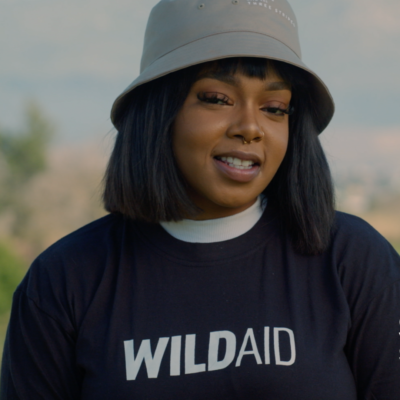
WildAid is excited to work with our newest South African ambassador, award-winning singer-songwriter Shekhinah on a new campaign #GiveCheetahsSpace.
Africa’s most threatened big cat, cheetahs have lost 91% of their natural habitat and they have already disappeared from 25 countries.
Today there are only around 7,100 cheetahs remaining in the wild, and the population is declining.
Almost 75% of remaining cheetah habitats fall outside of protected areas, supporting two-thirds of the global population of the cats.
That makes them especially vulnerable to human-wildlife conflict, to overhunting of their prey to supply the bushmeat trade, and to the loss of wilderness areas to farmlands, settlements and roads.
Farmers often kill cheetahs, especially if the growing scarcity of their prey forces the cats to attack livestock. With climate change and population growth putting increasing pressure on the environment, cheetahs face unprecedented threats to their survival.
We need to act fast to protect cheetahs. Watch our new video, Give Cheetahs Space, with Shekhinah:
But cheetahs also face significant threats from the illegal wildlife trade. They are poached for their skin and increasingly to be kept as pets, especially in the Middle East where they are seen as status symbols.
Shekhinah is a multi award winning Pop/R&B vocalist and songwriter from Durban, South Africa, and joined WildAid as a South African ambassador in 2021, adding her voice in support of the protection of wildlife.
Join WildAid and Shekhinah in celebrating the world’s fastest land mammal and highlighting its precarious status. Here are three easy things you can do to help us raise awareness for the protection of cheetahs:
- Share the #GiveCheetahsSpace video on Facebook
- Click to Tweet the #GiveCheetahsSpace video to your followers
- Sign up to receive our newsletter
Stay in touch and get the latest WildAid updates.
SIGN UPAbout WildAid
WildAid is a non-profit organization with a mission to protect wildlife from illegal trade and other imminent threats. While most wildlife conservation groups focus on protecting animals from poaching, WildAid primarily works to reduce global consumption of wildlife products such as elephant ivory, rhino horn and shark fin soup. With an unrivaled portfolio of celebrity ambassadors and a global network of media partners, WildAid leverages more than $308 million in annual pro-bono media support with a simple message: When the Buying Stops, the Killing Can Too.
Journalists on deadline may email communications@wildaid.org